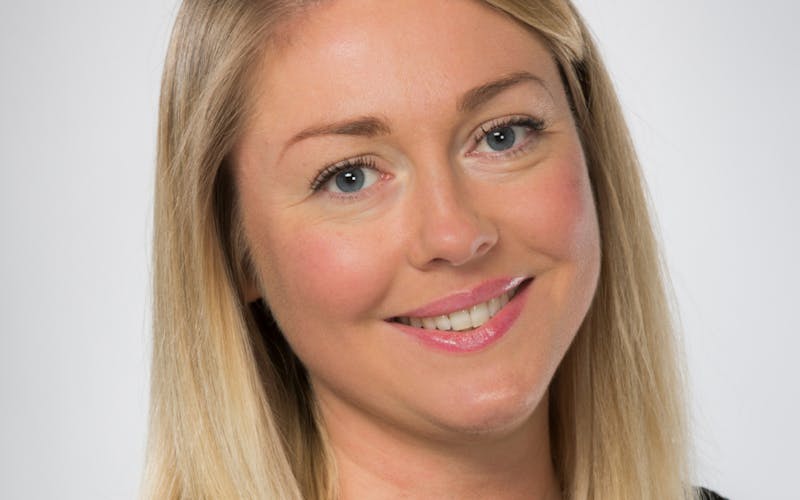

for Walpole members and
non-members available now
at The Londoner



Walpole: How did you come to work in sustainability?
Krishma Singh Dear: I have been involved in the journey of The Londoner since its inception 10 years ago. The ambitions for the hotel were always bold in terms of the experience for customers, but also to be a sustainable build that would stand the test of time. My role became more focused on the interiors and choosing all of the guest products that are found within the property.
Upon completion, The Londoner was awarded a BREEAM rating of ‘Excellent’, which means that the property was built with ESG, health and net zero goals in mind, and put it at the top 10 per cent of new UK buildings. Being a luxury hotel, achieving this rating whilst maintaining exceptional service and guest experience standards was not easy. Tremendous care and effort were taken to ensure sustainability was considered throughout the hotel. This included simpler initiatives such as LED lighting and digital keys, developing into more complicated solutions such as an IMC waste station that grinds food particles into a solid matter a fraction of its original size, and sensors that ensure that bedroom HVAC systems are switched off if the window is opened.
In an ever-changing area of corporate policy, what's one resource that's really helped you in your role?
Since COP26 we have found that customers’ attitudes have changed, and they are now asking our teams for our sustainability credentials. Many customers state that The Londoner’s ‘Excellent’ BREEAM rating was a key reason for booking. It's reassuring that guests and corporates are putting sustainability so high on their travel agenda.
What is the biggest challenge your company faces when it comes to delivering your sustainability goals?
Covid-19 dramatically impacted the hospitality industry and has made it challenging to make all of the progressive changes across the rest of our property portfolio at the rate we previously envisaged.
What's your best advice for communicating your sustainability work with customers?
Work closely with marketing and all employees to ensure they are equipped with the knowledge and data to communicate the sustainability practices accurately and truthfully to customers and clients.
Is there an area of sustainability that you think doesn't get talked about enough in the luxury industry?
In the luxury hotel business, hotels are celebrated for constantly refurbishing their spaces to be fresh and newsworthy. Luxury should be about maintaining a quality space rather than continuously changing it, which is a huge part of the foundations of sustainability: the ability to sustain and re-use, rather than expending to renew.
Which action you've taken has had the most impact during your time in the role?
I wanted to ensure that sustainability was considered for most guest touchpoints. This included implementing recycling in the bedrooms and eliminating single-use plastics. Instead of providing small soaps and shampoos we decided to use full sized refillable Miller Harris paraben- and sulphate-free products in our bathrooms, which are made from recycled plastic and are refilled on site. In addition, water at the Londoner is supplied from Nordaq – an in-house water filtration system. Bottled water has a hugely negative impact on the environment with costly production of glass, lengthy transportation, and waste management issues. It's a sustainable, closed-loop system for premium water, delivered on-site with no disposable bottles and a fresh, crystal-clear taste experience that has 163 Michelin stars to its name.
What action do you wish you or your company had taken sooner to aid your company's sustainability?
On a group level, Edwardian Hotels work with amazing local suppliers for our food produce. At all our London properties, most of our vegetables are supplied by Watts Farm, which is only 15-20 miles from central London. We use Burford Brown Eggs and meat from Aldens Farm in Oxford throughout our hotels. We are only collating this information now as part of our messaging on this topic although we have been using these suppliers for over twelve years.
What are your main priorities when it comes to sustainability?
At The Londoner, it's firstly ensuring that we continue to operate the property at a BREEAM 'Excellent' level, which is a challenge in itself. We have a CHP (Combined Heat and Power) unit installed at The Londoner that creates a heat network connection. Our initial aim is to link this to the Edwardian Hotels-owned hotel next door, the Radisson Blu Edwardian Hampshire, to allow it to benefit from this more efficient electricity and heat generating system.
Collectively, what action is going to drive the most change for the luxury industry?
It's a mindset shift. We should celebrate timeless quality furniture and clothes and demonstrate the concept of “buy once, buy well.” The same can be said for enjoying meat. Eat meat, but make sure it's good quality and sustainably farmed; eat it less often but look forward to it!
Can you tell me another luxury company whose work in sustainability you admire?
ViSpring is our group supplier of mattresses and aims to be net zero by 2025. They are completely British-made, handcrafted by skilled artisans in a Plymouth factory. Their products are made to last with a 30-year guarantee and are 100 per cent recyclable at the end of their life span. From a luxury fashion perspective, I admire The Restory. I think they do a great job at demonstrating that pieces of clothing can have more life in them if they are properly maintained.








